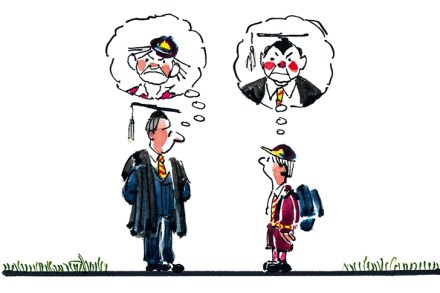Talking heads: The best of schools, the worst of schools
As careers for Oxford Union-debating PPE graduates go, Shaun Fenton’s has not been wholly orthodox. Leaving Keble College in 1992, he took up a job with what is now Deloitte and trained as a chartered accountant. So far, so ordinary. But it was on a trip back to his old school, Haberdashers’ Askes’ in Elstree, to see his former mentor David Lindsay that he had his epiphany: ‘I told him that I felt I was helping companies, but I wasn’t being me.’ He thought of teaching as an option, and decided to move from a job about ‘effective economics’ to one about ‘authentic relationships’. He adds: ‘I loved it, and




















